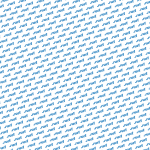"It was like Hollywood" - Interview with Maciek Rutkowski
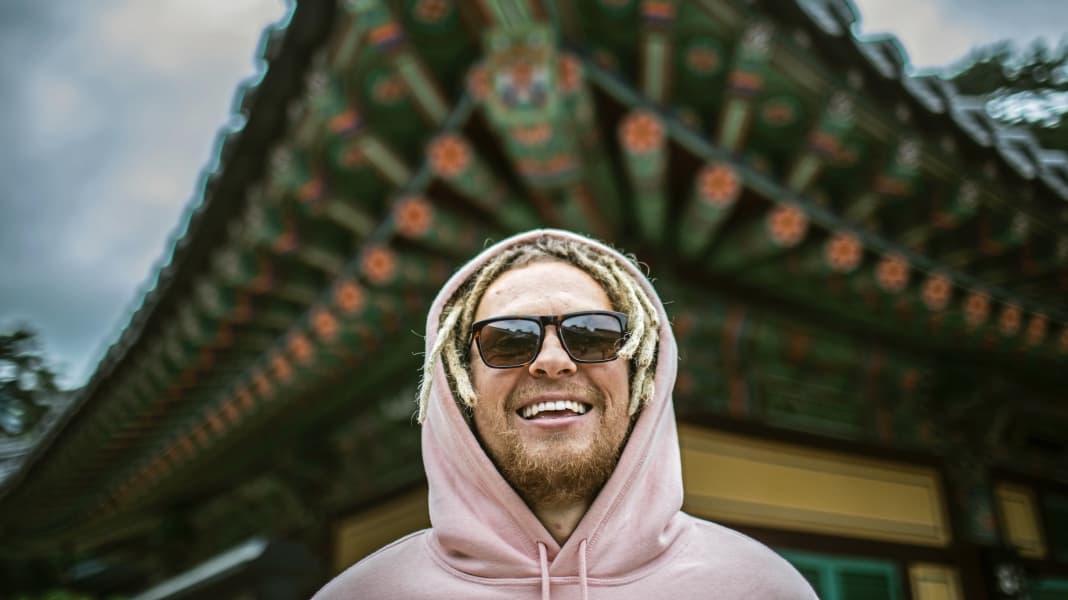
The name Maciek Rutkowski has appeared more and more often in the top places in the PWA slalom rankings in recent years. The Pole with the distinctive dreadlocks took his first victory on the tour at the only event in Croatia in 2020. In this interview, he talks about wild surf cups in Poland, his special reputation and his endeavours to make it to the top of the world. .
Over the last few months, many people have got to know you as the host of the Windsurfing.TV podcast. Has it been a dream come true to interview some of the legends of our sport? A few weeks ago you spoke to Robby Naish, how surreal is that?
That was really great. A friend wrote to me afterwards to say that I had a big grin on my face the whole time. You could see that I enjoyed every moment of it. Not only was I able to chat to Robby, but I was also able to ask him everything that had been nagging at me all these years and confront him with everything you hear about him. It was probably even more exciting for me than for everyone else out there.
Did you also grow up with "RIP"?
I'm too young for that. I grew up with "Flick" by Jason Polakow, "Aloha Man" by Josh Stone, the 1999 PWA highlights and "Namotu Fidji Wave Classic", which were the four VHS tapes I had. Three of them have disappeared, my dad lent them to someone and never got them back. It's a real shame, I'd love to see them again.
You were born and raised in Słupsk, the famous wavespot. At least I've heard that there are waves there, right?
Yes, the beach is about 15 kilometres from Słupsk, there's a small harbour upwind that protects you from the chop. My home is the best wave spot in Poland, or at least the easiest, where you can easily have fun, it's like a playground. But it's still a long way from Guincho or Hookipa or Pozo.
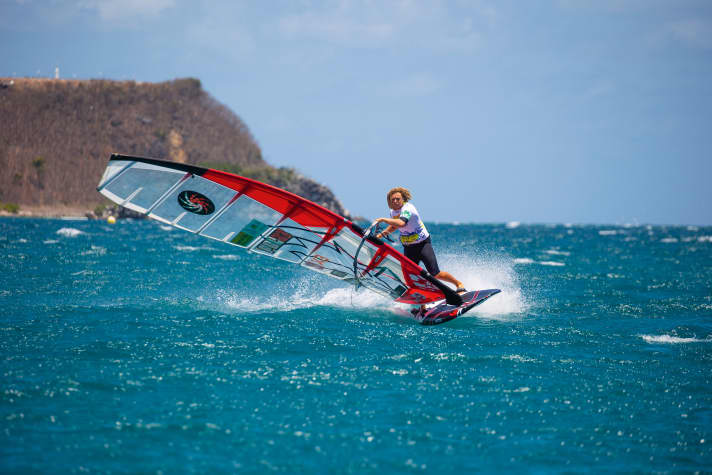
When did you start surfing?
I can't remember that. My father always went to the lake where we live. We have beaches, then dunes and small lakes behind them, and he always took me and my brother there since we were born. My brother was already surfing, so it was only natural for me to get on a board too, which is why I can't remember it very clearly. My first concrete memories are of gliding and my first jumps and things like that.
Poland has a very lively racing scene, doesn't it? Many people will remember Wojtek Brzozowski. Did he influence you?
He became Formula World Champion in 2000 and had a really good group around him, his brother is a marketing genius, so he became very well known very quickly. He was on TV every other day, he was a real celebrity! And of course you orientate yourself on that. My father then realised that Wojtek's father worked as a trainer. That was great, we all lived together on the campsite, you were shoulder to shoulder with real pros and world champions, and then you could emulate them. A lot of Polish surfers come from official clubs, from the Olympic scene or something, but I never wanted that. I wanted to be a waverider, a freestyler and do everything you do on the open sea. I was eleven, I could go into the waves at 14 knots with a 4 square metre sail (laughs).
Back then, there were these events in Poland that were sponsored by the telecoms company Era, with lots of money and a few girls.
I was 15 or so at the time and really enjoyed it, the parties and the Hollywood lifestyle. At the award ceremonies, you couldn't see from the podium where the crowds ended. You got a few flowers, threw them into the crowd and the girls went crazy. Once there was a concert by Boney M, another year Shaggy was there and we partied with him after the concert. That was big Hollywood, definitely something different to what most surfers experience at that age (laughs).
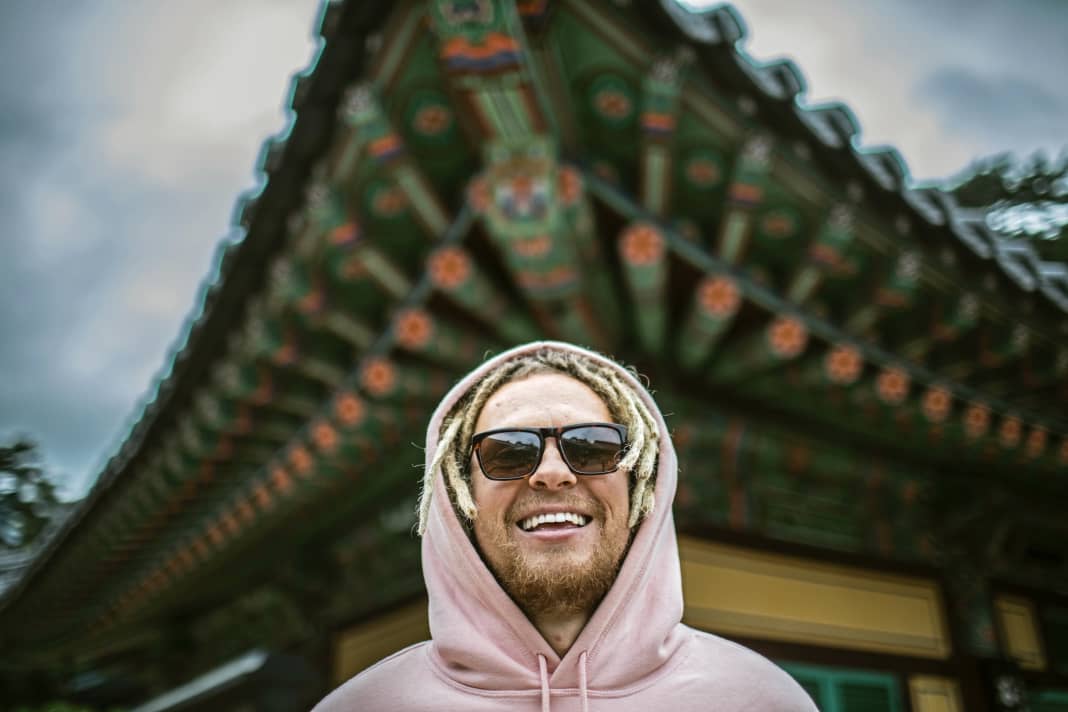





Can you still remember your first contest, your first good result? That often decides which path you take.
Back then, there was a national event almost every weekend in the summer, and I almost always won a prize as the youngest or was on the podium in the U17 classification. There was always a lot of attention right from the start, which spurs you on and shows that you're getting somewhere.
Over the years, you have won several world championship titles in the youth category. Who were you travelling with back then that people still know today?
My first international contest was in Christchurch in England in 2005. I rode in the U17 category, even though I wasn't even 15 yet, but the two classes started together. Pierre Mortefon won back then and Julien Quentel won the U20 category. I've seen these guys at the European and World Championships almost every year since then. Basti Kördel was also very good. Who else was there? Matteo Iachino was there too, but he was bad. (laughs) I certainly don't remember him. Malte Reuscher was there, Jordy Vonk was also in the lead for a while when I won afterwards. A really strong generation!
When did you join the PWA tour?
When I became junior world champion in 2010, I got a wild card for the PWA event on the Costa Brava. I was only halfway through the first shot when the others were already stopping at the buoy. I wasn't even close. Some people want to be the best windsurfer in the world in the PWA right from the start. I said to myself: get the junior title, get the junior title, that's what I did. The next step would then be the PWA title, which is simply a huge leap. I also raced in Turkey that year, which was my first PWA contest. We had a Formula event in Poland before that, but I don't think it counted. That was in 2004, when I was twelve or so, and I was more of a mascot.
I remember you when you turned up on tour and I thought: This kid is the cockiest guy I've ever seen. You've changed since then, especially in the last two years you've become more relaxed. Was your cocky demeanour conscious back then?
I think it was just those Hollywood events that I grew up watching and winning. PWA was always my dream, more than the Olympics. And I thought, now I've done it. I don't remember being conceited, so I guess it was normal for me.
What kind of sponsorship did you have back then as youth world champion? Young riders who are now at a similar point might also be interested.
I was already doing a lot of media work back then, I worked for a surfing website as a part-time job at school, wrote news and published videos. So I knew my way around a bit and was known in the local area. I then made a few videos to get noticed internationally, and in 2010 I was given loan material from the Gaastra/Tabou importer. I had to give it back at the end of the year and they were then able to sell it on without really losing any money. Then in 2011 or 2012 I won an energy drink as a sponsor, which really helped me to ride the tour. I think it was 4,000 euros at the time, which seems like a lot of money when you're 19, but back then it was worth a bit more. It really helped me, especially with the travelling expenses. I then also rode in a few IFCA events, there was some prize money on top. It wasn't easy, I often slept in the equipment tent or in Marco Lang's van. At some events I simply had no money at all. Later, when I was sponsored by Patrik, I met up with him somewhere in Europe and travelled to the events with him to save money. As I said, it wasn't easy.
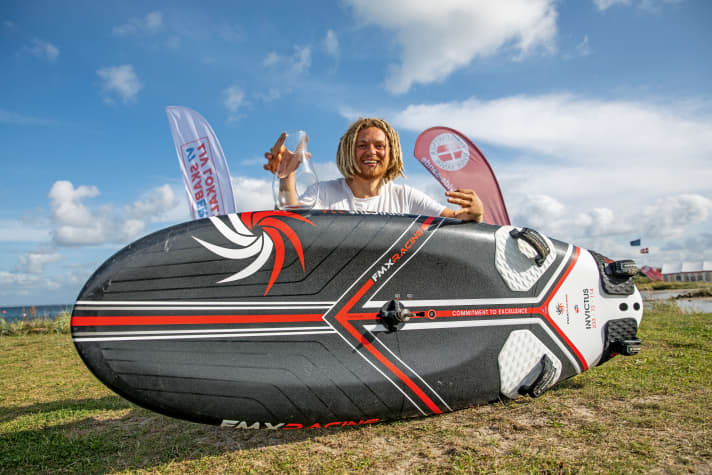
So, you started in the PWA in 2010 and your breakthrough came in 2017/2018. Did you realise at any point in between that you could make it or were there moments when you thought, 'I give up'?
Oh yes, there were many. Especially at the end of the season, when you think you've made progress but the contracts don't get any better. You come on tour, fall flat on your face and then have to start from scratch. I'm very pragmatic and said to myself: 'OK, I want to get through the first round now'. If you can do that, you've achieved a goal, no matter how big or small it is. In 2012, I finished 14th on the Costa Brava, which was mainly down to luck with the conditions and the material. Then in 2014 I was seventh on Sylt, there was only one elimination and I made it to the final. So every year there were big encouragements, but also big setbacks. A long time, lots of ups and downs, many times when you wanted to throw in the towel. But luckily I was young, others my age were studying and nobody had much money. I got through it somehow.
What have you changed to become better and more consistent? You've now won eliminations, you've already finished on the podium... Does that also have something to do with the training you started in Tenerife when you were racing at Point-7?
The Point 7 training definitely helped in terms of surfing. I think I've always been pretty good in terms of control and technique, but there's a lot more to it than that. You have to be able to call on your skills at the crucial moment, and that didn't happen for me until 2018. I also lacked the physical fitness. I went to a gym and the trainer told me: 'You're not a professional athlete if you don't train 30 hours a week'. I then took a flat in the neighbourhood and trained 30 hours a week for three months. When I finally weighed 94 kilos instead of 89, the board was much smoother. You ride in a much straighter line, I had always been quite good at jibes, but I had to get used to my new body.
I saw that on social media at the time and thought, "this guy is really serious!". You talked a lot about weight, what's the ideal weight for slalom?
It's easier to be fast when you're heavier because you transfer more sail power into the board. It's not just through the foot of the mast, but also through your hands and the harness into your legs, which is why leg strength is so important. There are so many things, the sport is so complicated, and after five years I realised that it doesn't come naturally and I dissected and analysed everything. That gave me a lot of my drive and passion when you realise that it does work. And you become very aware of this process. To this day, performance is like a hobby for me, I like to analyse why things are going the way they are for me or for other athletes in other sports and where the adjustments are.
I find it exciting how you emphasise the psychological aspect. You have to be able to do certain things, you have to have the equipment, you have to have the fitness, but if your head isn't right, you won't win anything.
Yes, the head is important. I had a good rhythm in Denmark in 2017, had good starts, good gybes, did a lot of things right and finished seventh after nine eliminations in many different conditions. I thought that if I rode like that all year, I wouldn't be 16th in the rankings at the end of the season, but much higher up. I had already contacted four psychologists at the time, but there was simply no connection. None of them wanted to deal with our sport. Enrico Marotti then put me in touch with a mental coach, who has since become a good friend. You optimise your equipment, you optimise your body, so you also optimise your mind.
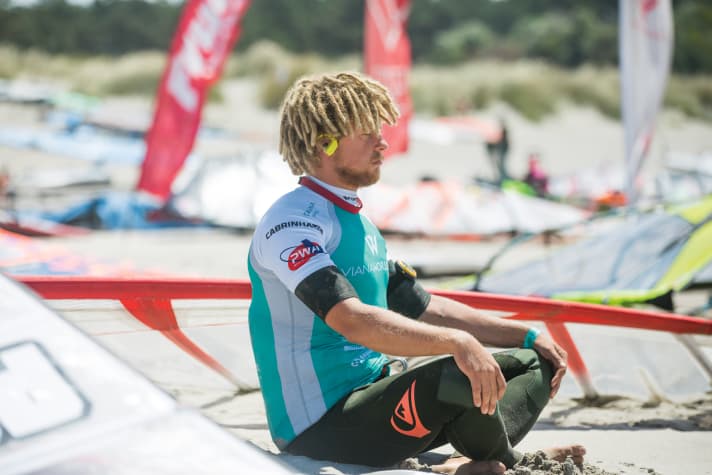
That was successful, because in 2018 you finished on the podium and won races, or at least almost won.
My first podium was in New Caledonia in foiling, which was still brand new back then. And that finally brought me the attention of bigger sponsors. I-99 approached me and I was able to test three brands of sails that were open to me. One of the offers was much better financially, but the Challenger sails were faster. And I thought, this is not the time to get the sheep in the bag, but to get good results. 2018 then became the year in which everything slowly fell into place. Until then, that had never been the case for me. With Patrik, I always had the feeling that he didn't take me seriously and didn't give me the chance to develop. I always felt threatened at Point-7 because there was a lot of coming and going in the team and I always had the feeling that I had to prove myself.
Do you think that was Andrea Cucchi's intention, to always get the best out of it?
I don't know, he has a certain way of pushing people, sometimes he hits the nail on the head, sometimes he misses. But when you're barely making ends meet, you want a bit of comfort. There was a little bit more comfort with Gaastra/Tabou, but the material just didn't suit me at all. The only person who can ride this stuff fast is Ross Williams, and he has a completely different style to me. You get the feeling that you're just a small cog in the wheel. What's more, a few people there wanted to get rid of me, wrote weird emails to the boss saying that I was unprofessional and so on, and poor Ross as team boss then had to iron that out.
Everything was fine at I-99, but you moved to Finian Maynard's new FMX brand after just one season.
If possible, I would have signed a three-year contract with I-99 straight away. Finian was the shaper there and we developed the foil board together. He then told me that he wanted to develop further and set up his own brand, and that he would like me to be his main rider. That was a tough call to make to Cesare Cantagalli at I-99, but Finian is the shaper, he's the one responsible for the performance.
Finian has built some of the best slalom boards of all time at RRD and I-99, and if it fits and someone like that wants one as their main rider, that would be hard to turn down.
He is a good shaper, but he has never run a company before. He announced that he would run the company in a very 'German' way, transfer money directly and so on. He delivered on that, but you don't know that before you sign the contract. Now it looks natural, FMX is successful and a good dynamic has developed between us, but you don't know that beforehand.
But it was obviously a good decision, you took your first podium and won eliminations. You always have to remember that you're not the only one who wants to win.
Yes, that's the first thing a mental coach teaches you: you have to judge yourself by your performance, not by the result. If you go full throttle, stop perfectly and finish fourth, you've performed at your best. You can't improve your performance in that race. It's difficult to get used to this view, but it's the only correct way of looking at things. And those who internalise this are the ones who consistently ride at the front.
You were once voted the most dangerous rider on the tour, was that a deliberate thing? There are photos of you with your fist in the air...
A lot of things came together. I drive hard, definitely. I can only remember two cases where I crashed into someone, but at least ten where someone crashed into me. But because I'm so present and live my emotions, everyone only ever remembers that I was somehow involved. Matteus Isaac said at the time: "Maciek always takes full risks, but he knows what he's doing." And that's how I want to be seen. I want to see hard racing, I want to see rail-to-rail racing and forks being pushed into the other riders' backs. That's what I want to see, it's good for the sport and for the public.
There was the speed event in France recently, Antoine and Matteo were at the front, but there are very few PWA slalom riders on the speed circuit. Doesn't that excite you?
I'm 28, Andy Laufer is 50 and rides great! I think I'll have time for that later. At the same time, of course, it's a special project, I don't have any boards for it and hardly any sails. Anyone who is reasonably successful doesn't want to take part in it completely unprepared. I don't want to go there and be four knots slower than everyone else. It would have been tempting to go to La Palme, but I couldn't get it organised. It's a bit like Hawaii: there was a forecast for Jaws and I wasn't prepared at all.
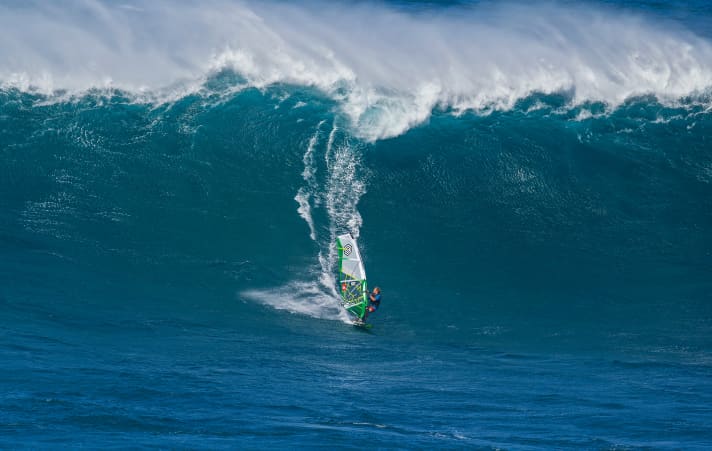
That really impressed me: you said beforehand that you wanted to surf Jaws, got yourself a jet ski and went there. How did you do that?
I booked the ticket for the end of November in September and had one thought in my head the whole time: What if Jaws breaks? What will I do then? With Jaws, I thought that with all my concentration on my slalom career, I would probably never get a second chance. I arrived the day before, went out in Kanaha and got so washed up that I wasn't back on the beach until dark. The next day I had to go out in Jaws. I had to organise a new fork first - but I'm happy that I did it.
How do you organise a Jaws session? Who do you speak to?
I asked around a bit and Brawzinho or Casey Hauser told me about a guy called Maxi, the best minder you can get. I called him and he was still free that day. I was so nervous, I couldn't even manage to rig up on the jet ski. The guy looked at me and I knew he was thinking, 'What a fucking weirdo'. But in the end it was an amazing experience, even if it was small and very choppy. But it was one of the things on my bucket list and I'm so stoked that I did it.
You've also competed in the PWA waveriding event a few times and even progressed. Those were pretty good heats, you beat people who are actually better than you.
It's the same as in slalom: you analyse the heat and think about it: What do you need to win? Firstly, get the jumps in, no matter how bad they are, and then choose the best waves. If you then manage an extra jump, all the better. Believe it or not, Brawzinho, Philip Köster and Ricardo Campello also switch down a bit in such heats and only do the things that they can land one hundred per cent safely.
It always looks easier than it is, but it's the same in slalom: if you watch Fuerte on the live stream, most people don't realise how tough it is. Eight of the best riders in the world arrive at the first buoy at full speed at the same time, all at full speed, brutal chop, all screaming, that must be scary...
That's great, I love that! When someone says slalom is boring, just a few fat guys racing down an easy course - that's the view that the course racing purists have, from the Olympic classes and the people from the sailing areas - I always have to laugh. It's the best feeling in the world!
But there are now also "real races" in the new Olympic class iQFOiL with modern equipment, which is also a huge showcase, the biggest there is, which can also be really good advertising for windsurfing.
Yes, I didn't think I'd live to see it, for me the Olympics were always rubbish. A lot of people will probably misunderstand that, it's not against the riders, they're great athletes! But the RS:X class is a load of rubbish that is damaging the image of windsurfing worldwide.
It's like Formula 1 in a Ford Fiesta. The new equipment for 2024 will finally open that up. We have the slalom drivers, the course racers, RS:X mixing it up with the PWA guys, and from what we saw in the Engadin at the European Championships, it's going to be a great success.
I don't like this separation, these are Olympic riders and these are PWA riders. Man, I'm a windsurfer. Kiran Badloe is also a windsurfer. An all-round surfer is needed now, more than ever before. You've got slalom, you've got course racing, all kinds of racing.
There was no real tour in 2020, but if there had been a ranking, you would have won because you won the only event in Croatia. It's a shame there's no world champion.
Just send me the wooden trophy in secret, nobody has to find out.
This interview first appeared in surf 11/12-2020
